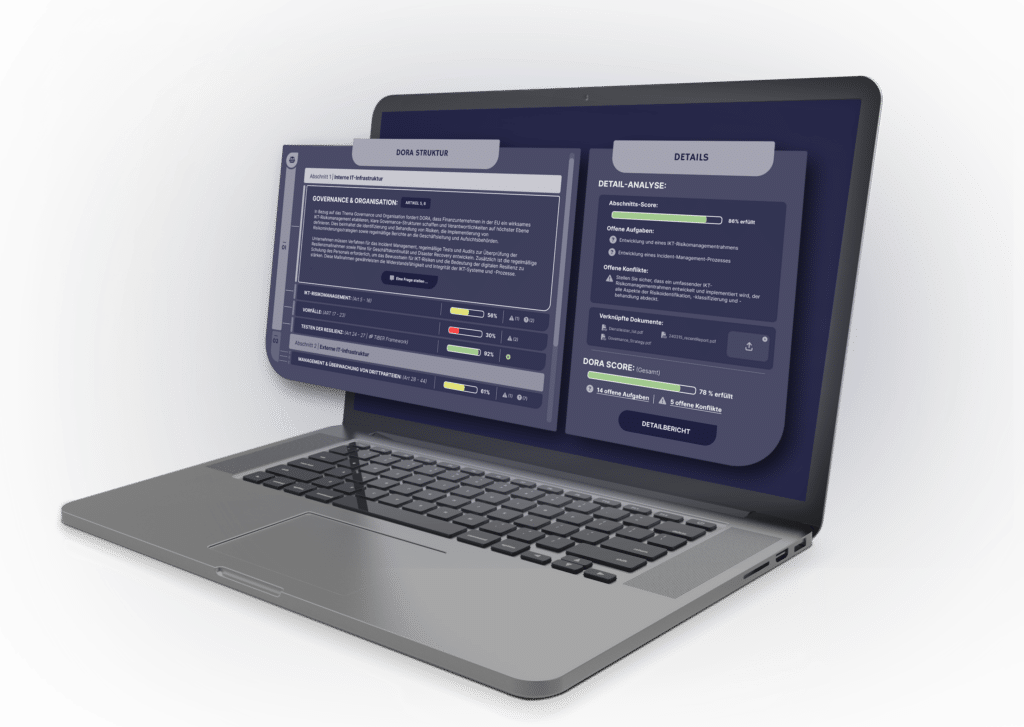Generative AI accelerates the implementation of regulatory requirements
According to one of our recent surveys, many financial companies do see regulatory intervention from Brussels, for example, as a driver of innovation. Nevertheless, they shy away from the enormous effort involved in organisational and technical implementation. Particularly in the weeks immediately before and after the start of applicability, the changeover takes up resources that are lacking elsewhere.
To remedy this, the Consileon Group has developed an AI-supported ‘regulatory radar’ in collaboration with Professor Jan Pieter Krahnen, an expert in corporate finance and financial market regulation. Our subsidiary syracom is contributing its expertise in the field of regulation. The first version, which is now available, simplifies and accelerates the implementation of the EU resilience regulation DORA (Digital Operational Resilience Act), which has been in force since 2023 and will apply from January 2025. The regulation contains a number of highly complex requirements. Financial companies are now faced with the challenge of actually implementing all requirements correctly. The Regulatory Radar supports this process with four core functions.

Recognising and closing compliance gaps – this is how the AI-based regulatory radar provides support:
- AI-supported audit to identify regulatory gaps with recommendations for action
- Generation of management or status reports
- Checking external ICT contracts for compliance
- Regulatory chatbot as an assistant and knowledge manager for legal texts
Like all AI systems, the Regulatory Radar only does part of the work for the user. The focus is on highly formalised, schematic and therefore monotonous tasks. Here, AI reduces the need for personnel and significantly speeds up processes. Specialist staff are freed up in favour of strategic or value-adding tasks, and the company also saves on some external services. The high degree of automation prevents difficult-to-recognise, sometimes costly errors that can creep in during manual processing.
However, because artificial intelligence does not work cognitively, but statistically, humans always have the last word in Consileon’s solutions. They check the machine’s output, make improvements and add to it.
As additional protection against AI risks, we have integrated the quality assurance software of our technology partner Lighthouz AI into the Regulatory Radar. As part of an exclusive contract, Lighthouz ensures consistently high quality and reproducibility of the answers, recognises security gaps and helps to close them.
Outlook
The potential benefits of an AI tool such as the Regulatory Radar are far from exhausted with the establishment of DORA compliance. Other regulations await their application in financial and real companies, including the EU AI Act, the GDPR, MaRisk, NIS-2, CSRD, the EU taxonomy and FATCA. Future versions of the Regulatory Radar will gradually cover these areas of application.


